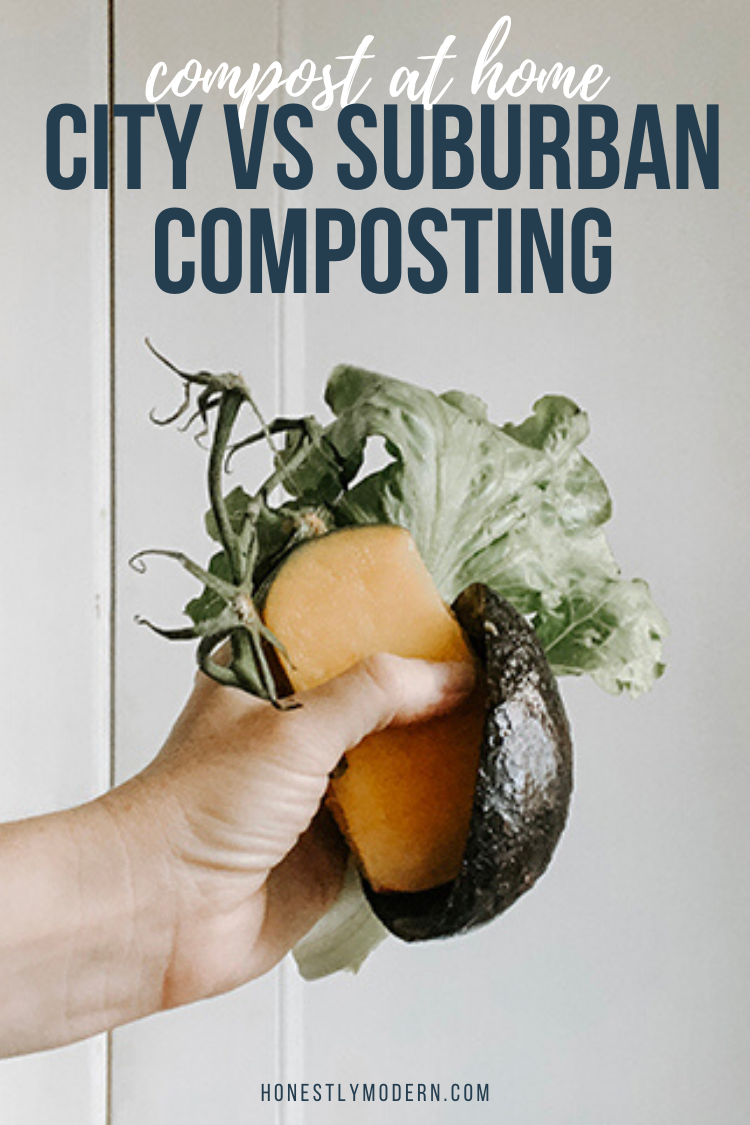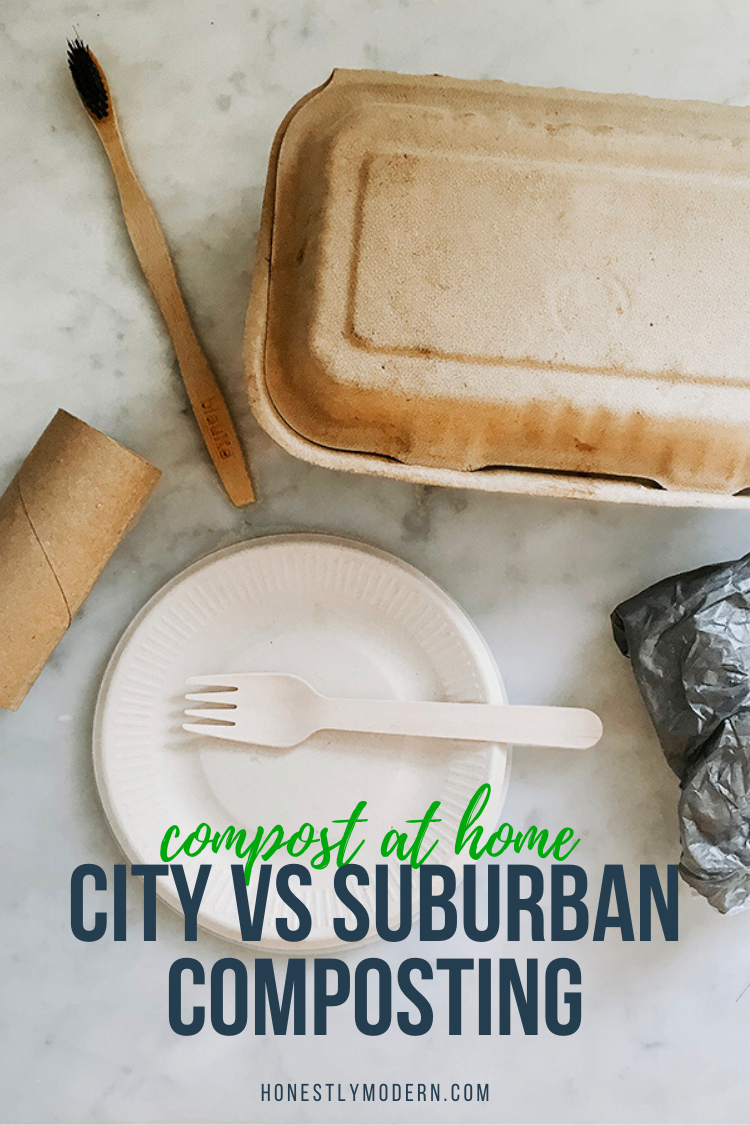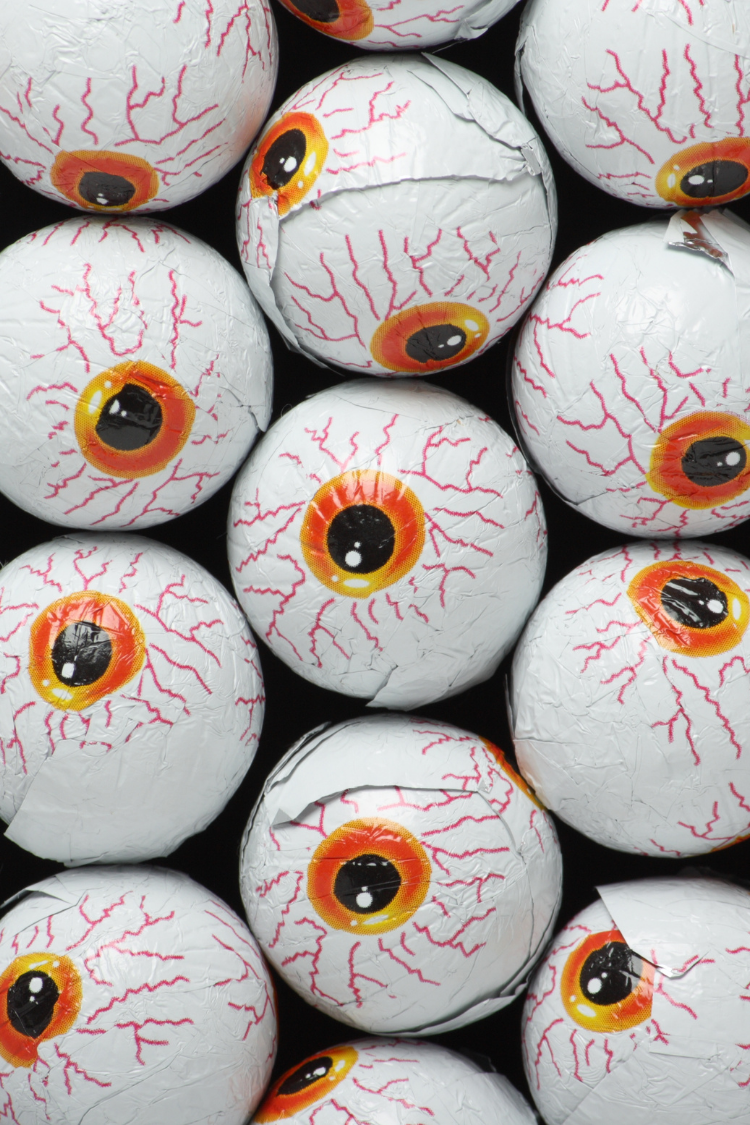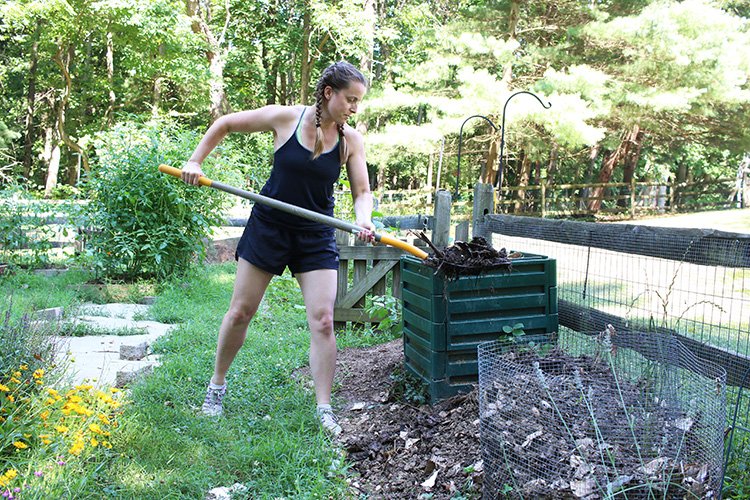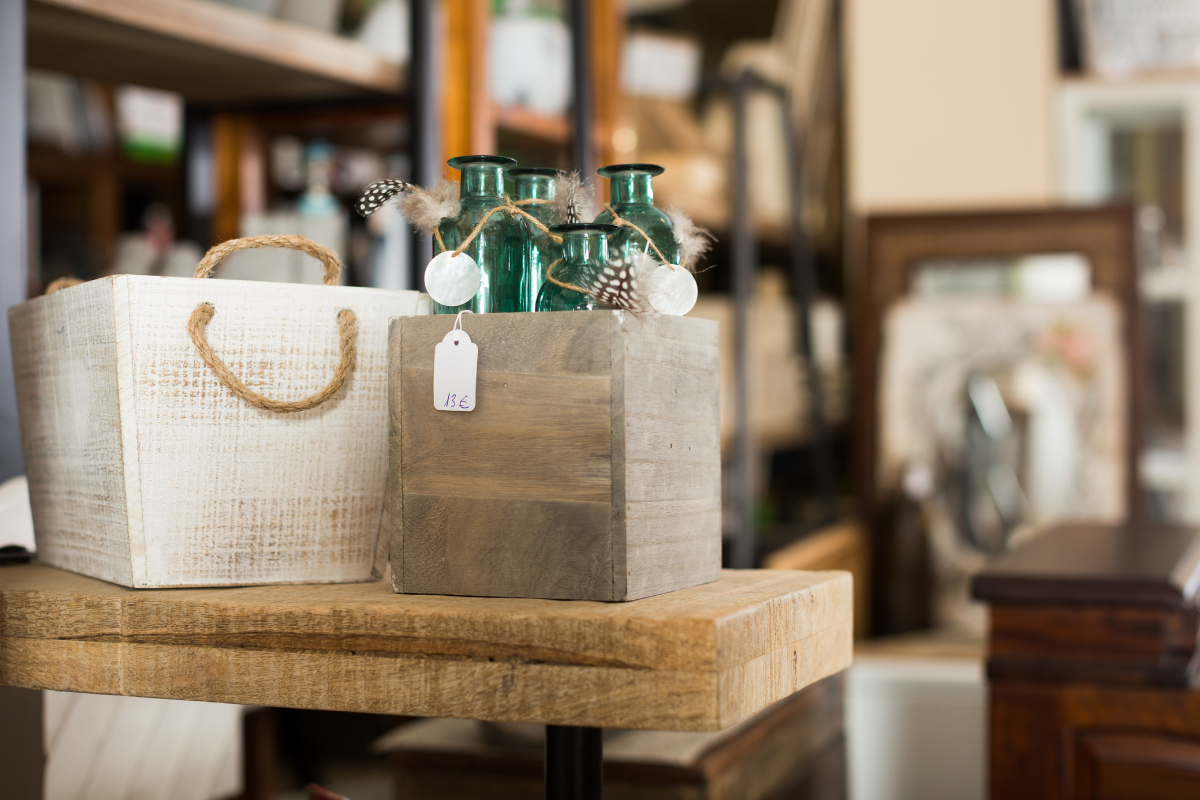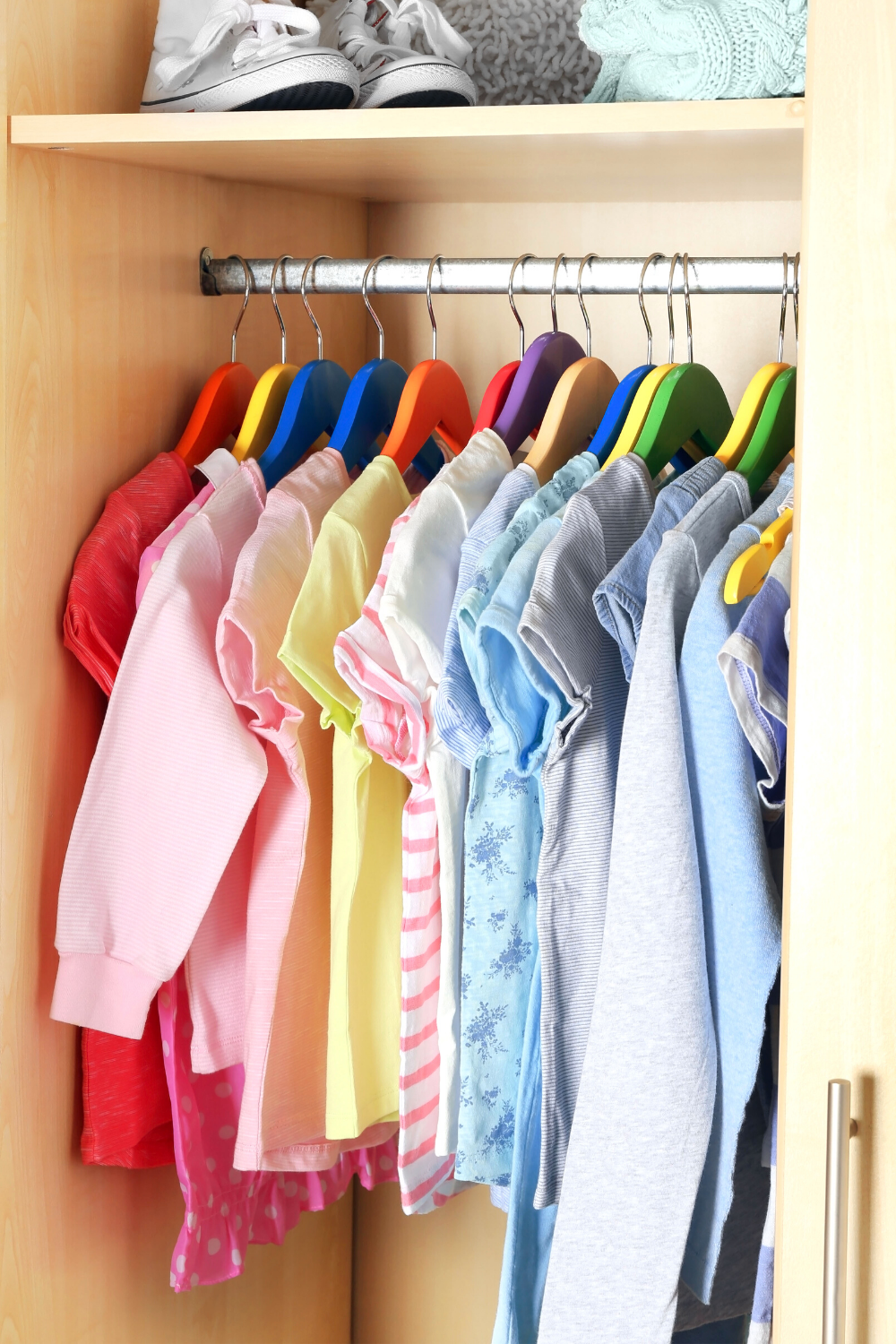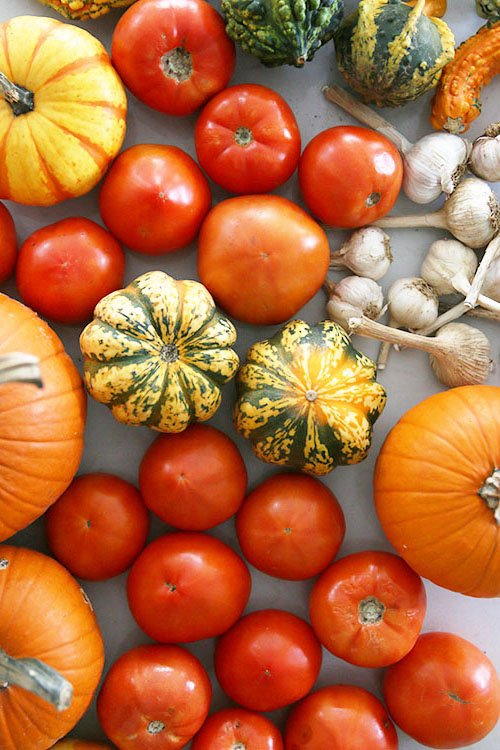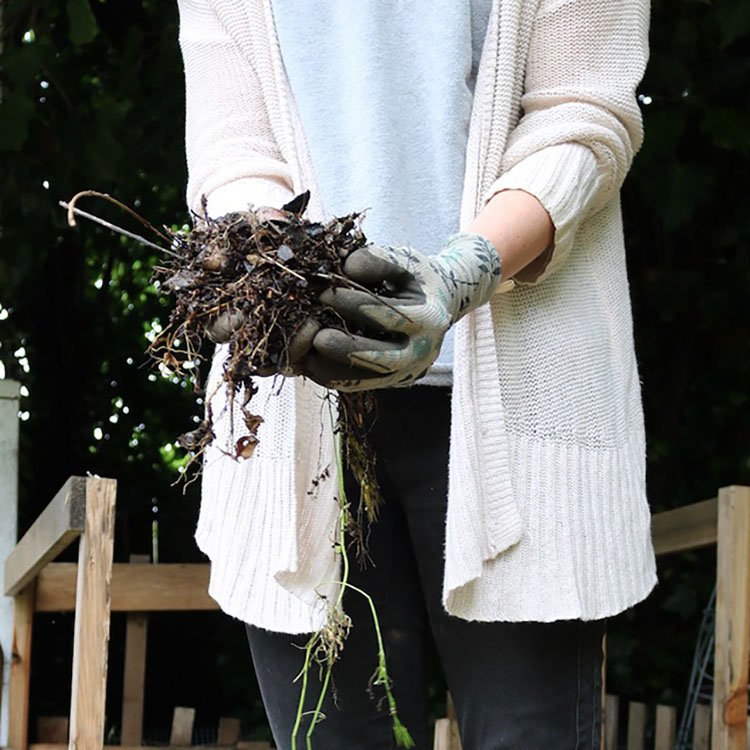How To Compost At Home | City vs. Suburban Composting
Do you know how to compost at home? Depending on where you live, there are probably certain ways to compost at home that work better than others. This family has been composting for several years and learned how to compost at home in the city and the suburbs. Check out their story about composting in both urban and suburban neighborhoods in another edition of our Bring Your Trash To Life Series.
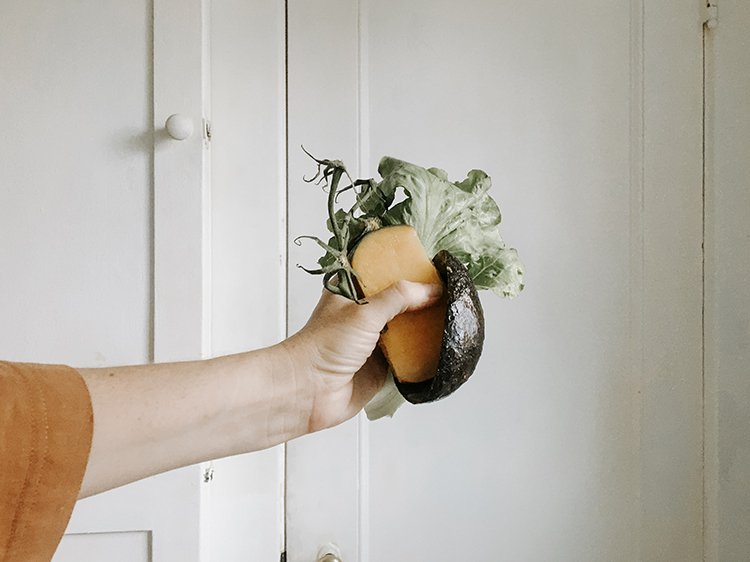
The Compost Chronicles series highlights families in various circumstances who have all found a way to compost at home that works for their lifestyle. Hopefully, you can be inspired to give it a go and help our planet become a little healthier.
Did you know that composting can transform your trash into new life? And that new life, in the form of microbes, fungi, earthworms, and more, provides the foundation for much of all other healthy life on Earth?
Composting is a great way to create healthy soil to support people and our planet. Healthy soil is also a magical carbon sink that absorbs carbon from our atmosphere and helps cool the planet. While dead dirt has few living organisms, a teaspoon of healthy soil has more living organisms in it than the entire population of humans on Planet Earth!
We need everyone to learn how to compost at home and make it a part of everyday life.
Don’t think you can compost? We’ve got a whole set of resources on Everything To Know About How To Compost At Home, including more Compost Chronicles interviews. All of this information about how to compost at home will hopefully prove that just about anyone can make space and find a system to turn their food scraps into nutrient-rich compost to enrich our soil, feed our food cycle, and limit the food waste that ends up in landfills.
Today, I’m sharing another edition of Bring Your Trash To Life from a family who knows that how to compost at home can definitely depend on where you live. Certain styles of home and living can make a big difference when it comes to what type of composting makes the most sense for your family. I’ll let Jillian take it from here.
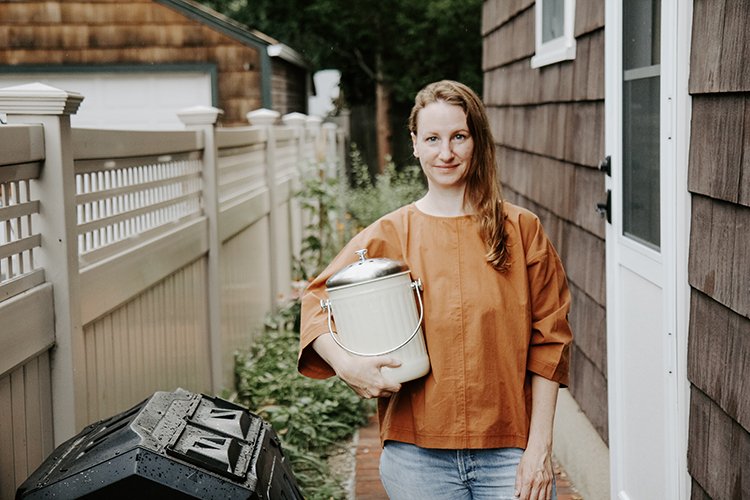
Can you tell us a bit about yourself, where you live, your family, etc.. the Jillian 101?
Hi! First off, thanks for letting me come on here and talk about composting — one of my favorite sustainable practices ever. Now about me. I’m a mom of two girls, a creative director in advertising, an amateur baker and gardener and a climate change basket case.
I grew up in Wisconsin, but I’ve lived in New York now for twelve years, first in Brooklyn, and then with my husband in Queens. That’s actually where we started composting. Now we live in the ‘burbs on Long Island. (Having two kids will do that to you). But the exciting thing about living in a house is that, if you have space, you can compost from start to finish — from scraps to garden.
Tell us a little bit about why you decided to start composting?
We started composting back in 2015 when I was pregnant with my first daughter. I spent a lot of time reading about no-tox living and sustainability at home, in hopes to bring our baby into an as-clean-as-possible environment. That’s when I discovered zero-waste living, and composting was part of that equation.
But! We lived in a tiny fourth-floor apartment at the time, so I didn’t think it was possible. Then we found out there were drop-off sites for food scraps in the city. That’s when we got the ball rolling.
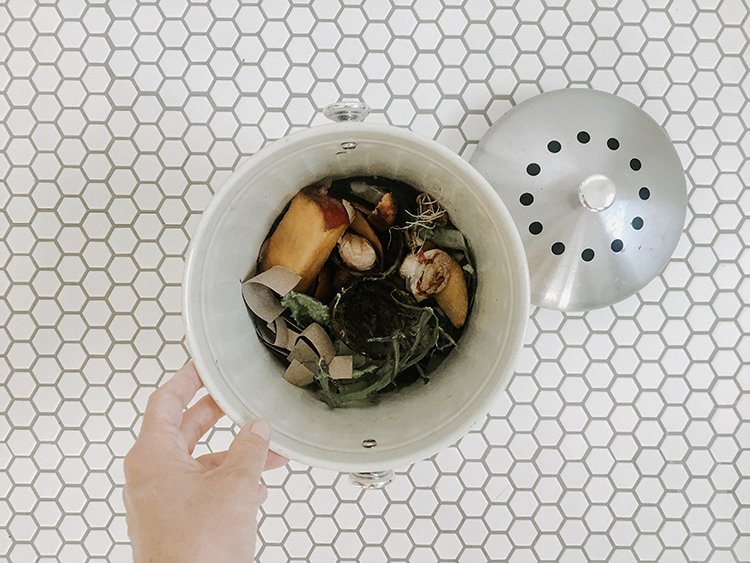
What methods of composting do you use or have you used?
When we were in our apartment, we saved our scraps in a big Tupperware container in our freezer. Once a week, we brought the scraps to a drop-off site on the way to work. New York City’s compost is used in local urban farming and gardening projects, so it felt good to contribute in that way.
Now in our house, we do all of our composting at home. We have a tumbler that lives right outside our back door, and a veggie garden that the “black gold” goes into when it’s done.
How do you store the scraps until they are taken to your compost pile?
We keep a small pail for food scraps on our counter where we do our dinner prepwork. That way it’s easy to just toss all of our scraps into it. Once it’s full, we dump it into the tumbler out back.
If we let the scraps sit for too long on our counter, we’ll get some fruit flies – mostly in the summer. We also get flies and gnats around our bin outside here and there, but it’s never seemed like so many that it’s a problem.
We’ve never had any smells at all! In fact, once it turns to compost, it smells really good and earthy.
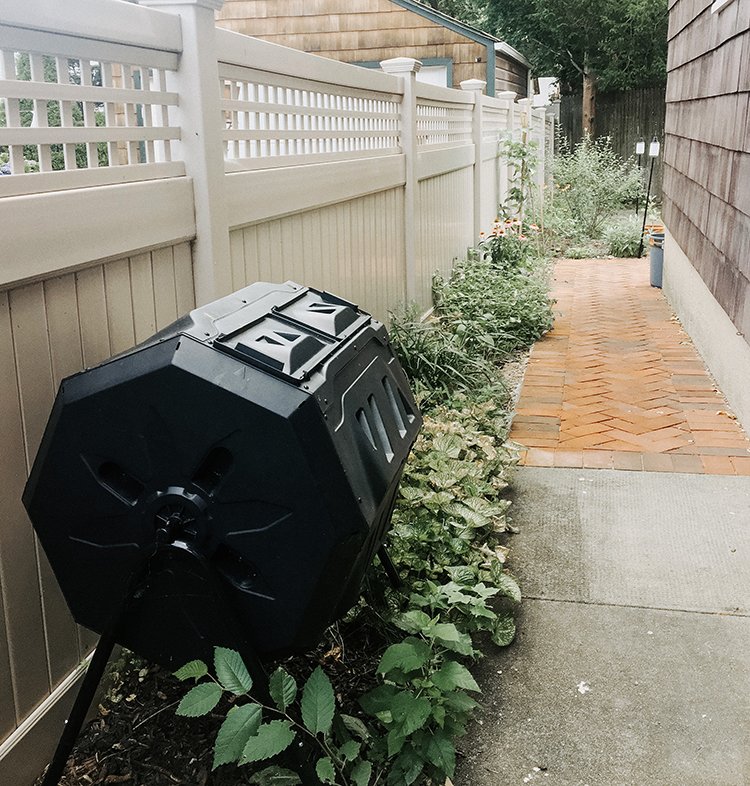
Have you had any issues with animals or pests getting into your compost pile?
Nope! We have about nine million squirrels in our yard, one neighborhood cat, and some racoons around, but we’ve never seen any animals try to mess with our compost. I think having it in a closed tumbler helps.
Do you have any special tools, containers, or products that help make composting easier or more accessible for you?
Yes! I highly recommend a tumbler if you’re a first time composter. You just put the scraps in, give it a spin here and there like you’re a contestant on the Price is Right, and let it do its thing!
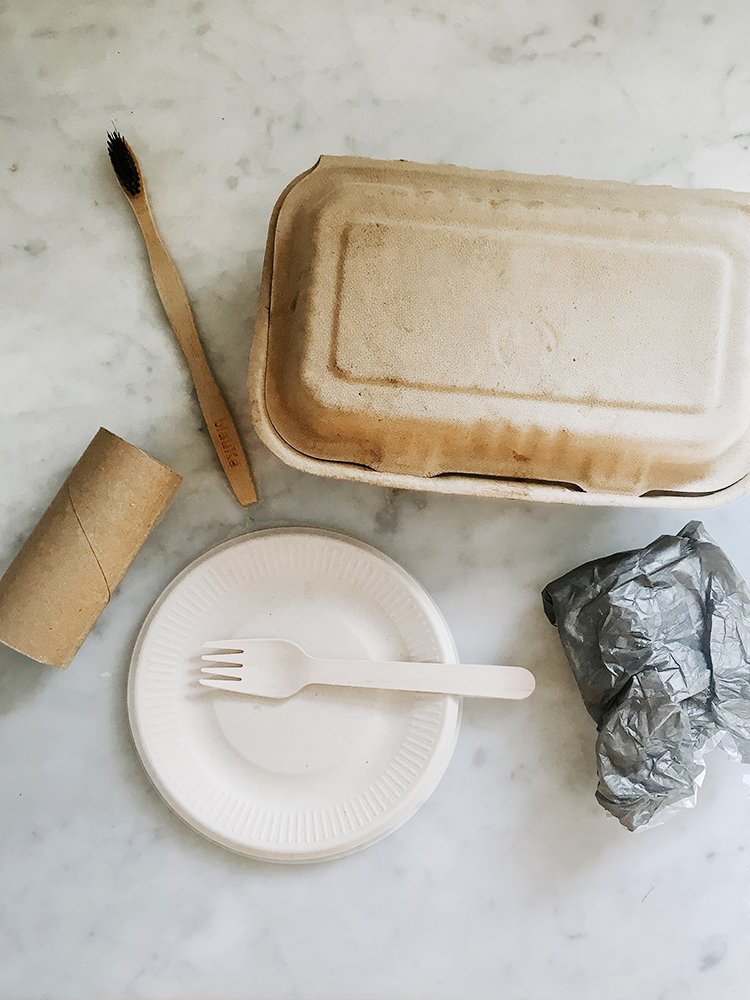
Do you have any other supplies that you store until you need to add them to your compost pile?
In the fall, I gather and keep a big bag of dry leaves to add to the bin throughout the winter. We also compost our toilet paper rolls, egg cartons, and brown paper. And we’ll use any newspapers that make their way into our house to line our pail. As far as storing these things without creating clutter? Ha! That’s a good one. Our house is a disaster.
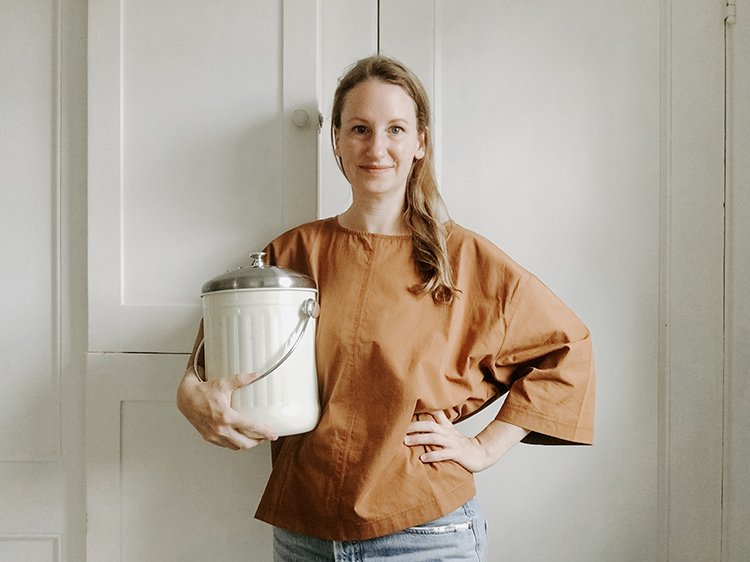
How does your family feel about composting?
My husband and I have both been on board since the beginning. Although, when we lived in the apartment, he was less into the idea of carrying a big frozen wad of food scraps six blocks to a drop off site than I was. Fair enough. Now that we’re composting at home, he’s much more into it.
Have you experienced any benefits from composting, especially ones that might have surprised you?
The biggest benefit I’ve seen from composting, besides seeing the process from start to finish and being able to use it in our garden, is the waste reduction in our home. I’d say our garbage has been cut by about half! We cook a lot – most meals vegetarian – and we try to eat lots of whole foods, so almost all of our food waste is compostable.
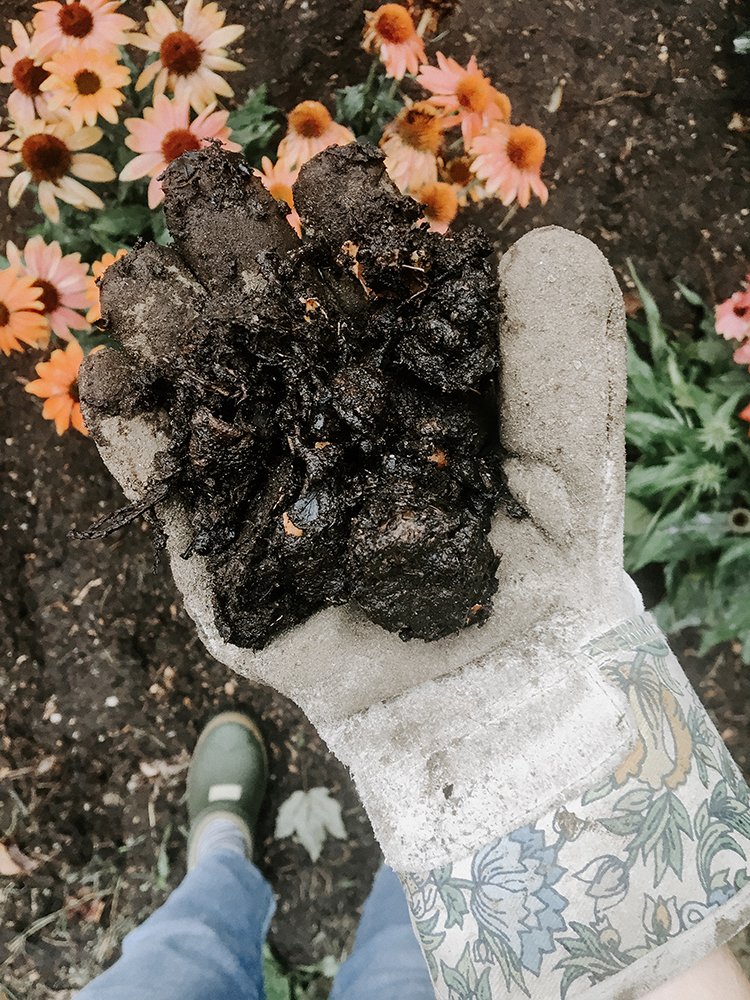
Anything else you’d like to share with readers about how to compost at home, especially to help beginners gain confidence that they too can compost?
I thought it was going to be gross, and smelly, and full of worms and bugs. I thought keeping scraps of food in my freezer or on my counter top was going to be slimy and smell bad. I was wrong! The things that usually smell are meat or dairy, and those things don’t go in your compost.
Where else can we find you and learn more about what you’re up to?
You can find me on Instagram at @from_scratch_mag. I post about sustainability, ways to reduce your impact, and of course, composting!

